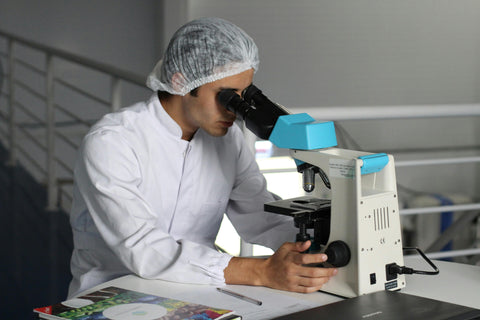
Real Stories: How Epigenetic Testing Transformed My Health
Epigenetic testing has empowered individuals to take control of their health by uncovering how lifestyle and environmental factors affect their biological age. These real-life stories showcase the transformative impact of understanding and acting on epigenetic insights.
1. Sarah’s Journey: Reversing Her Biological Age
- Starting Point: Sarah, a 42-year-old marketing executive, felt constantly fatigued despite following what she thought was a healthy lifestyle. Her epigenetic test revealed a biological age of 48, with signs of inflammation and stress-related DNA damage.
- Action Plan: Armed with her results, Sarah worked with a wellness coach to incorporate a Mediterranean diet rich in anti-inflammatory foods, daily yoga, and better sleep habits.
- Outcome: Six months later, a follow-up test showed her biological age had dropped to 40. Sarah reported feeling more energetic, with glowing skin and improved mental clarity.
2. John's Transformation: Lowering Heart Disease Risk
- Starting Point: At 50, John had a biological age of 58 and a family history of heart disease. His test highlighted poor metabolic health and excessive oxidative stress as key contributors.
- Action Plan: John adopted a plant-based diet, incorporated regular cardio exercise, and took antioxidant-rich supplements like vitamin C and E.
- Outcome: After a year, his biological age decreased to 49, and his blood markers for cardiovascular health improved significantly.
3. Emma’s Success: Improved Focus and Well-Being
- Starting Point: Emma, a 35-year-old entrepreneur, struggled with brain fog and frequent colds. Her biological age was measured at 41, driven by poor sleep and high stress levels.
- Action Plan: Emma implemented a nightly wind-down routine, including blue light blockers, magnesium supplements, and mindfulness meditation.
- Outcome: Within four months, Emma’s biological age dropped to 36. Her focus improved, and she felt healthier and more resilient to stress.
4. Mark’s Wake-Up Call: A Healthier Lifestyle
- Starting Point: At 45, Mark discovered his biological age was a staggering 60. His results indicated lifestyle factors like smoking and a sedentary routine were taking a toll on his health.
- Action Plan: Motivated to change, Mark quit smoking, started walking daily, and gradually incorporated strength training. He also replaced processed foods with whole, nutrient-dense meals.
- Outcome: One year later, Mark’s biological age dropped to 50. He felt more active, lost weight, and noticed improved mental health.
What These Stories Teach Us
- Knowledge Is Power: Epigenetic testing provides actionable insights into the root causes of aging and health issues.
- Small Changes Add Up: Simple adjustments, like better nutrition and regular exercise, can have a profound impact on biological age.
- It’s Never Too Late: Regardless of your starting point, you can improve your biological age with the right strategies.
Start Your Journey
Your story could be the next transformation. With epigenetic testing, you can unlock personalized insights and take steps to create your healthiest, most vibrant self.
